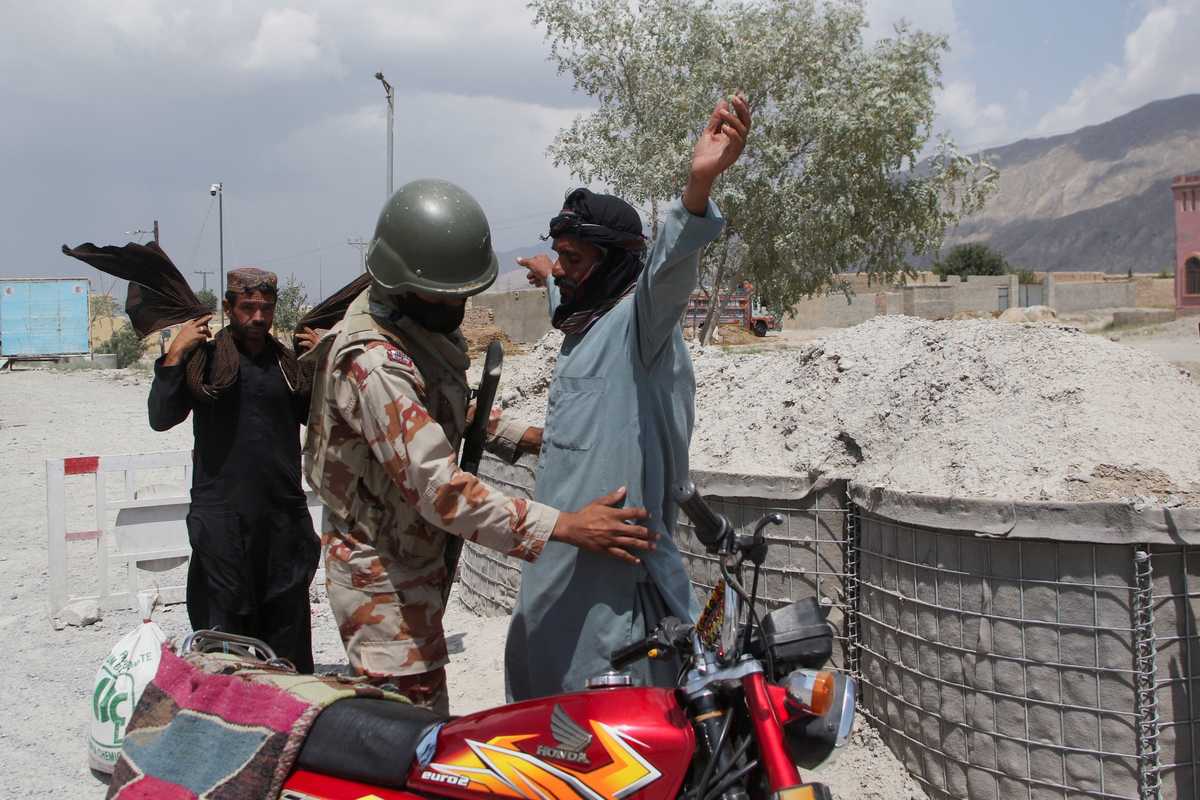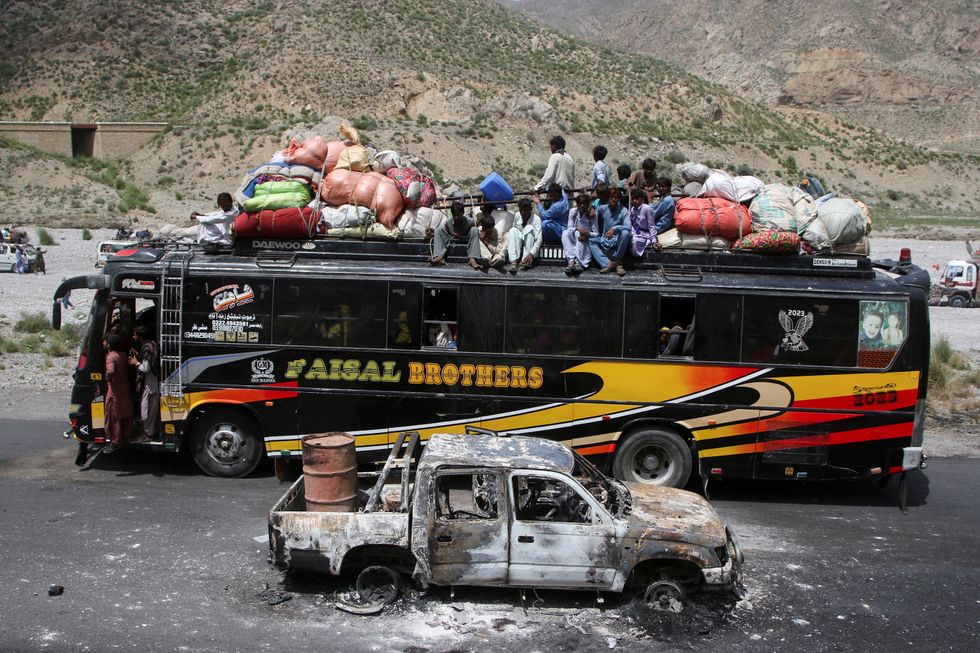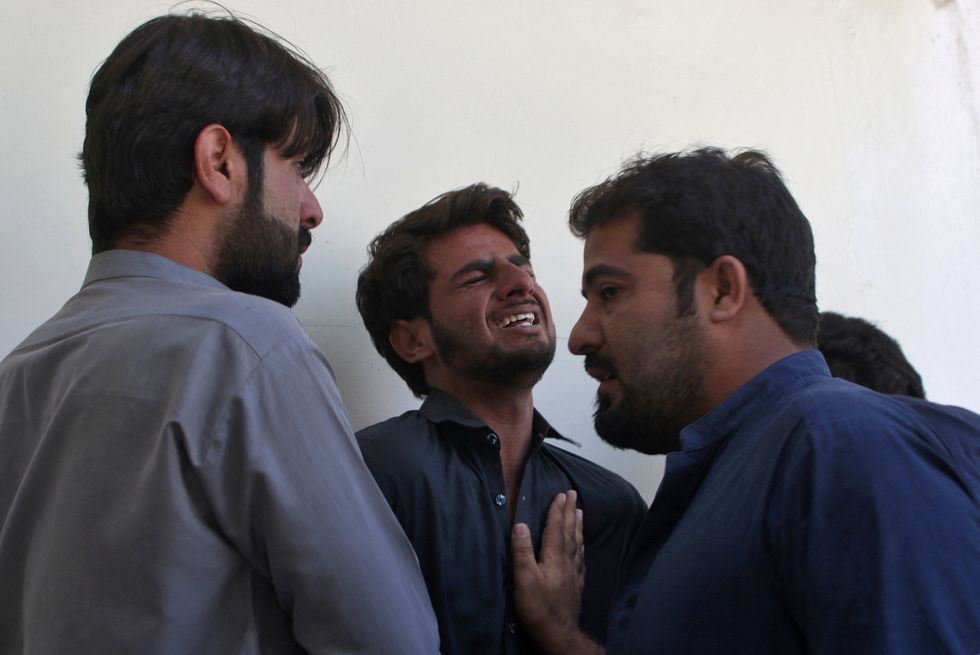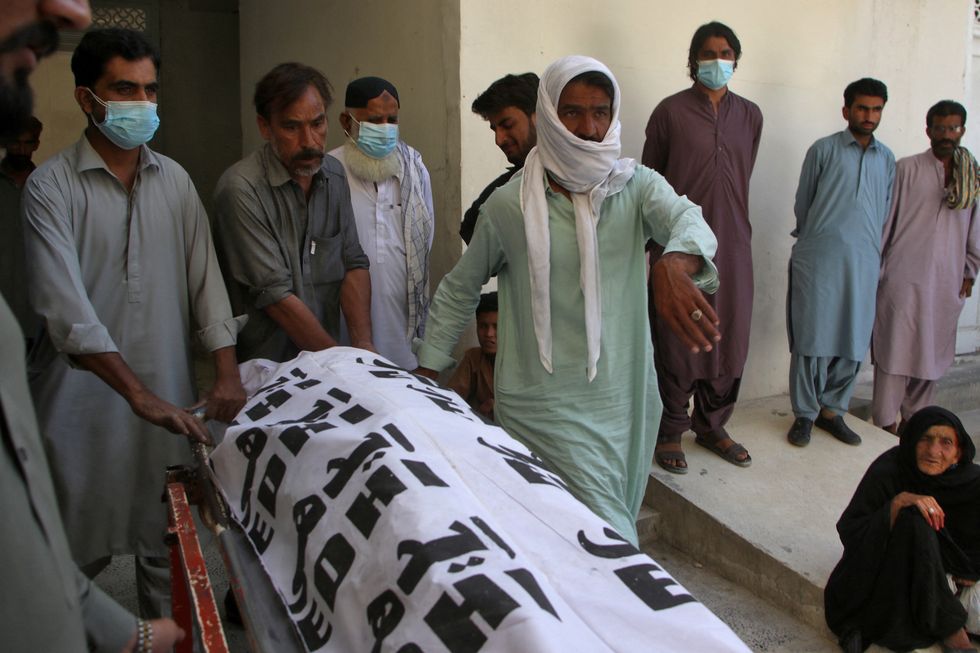Why just counterinsurgency won't work in Balochistan
Pakistan Army's spokesperson says recent attacks are an external conspiracy. Nationalist leaders, analysts agree dialogue only path forward, disagree on whom to engage

Zain Ul Abideen
Senior Producer
Zain Ul Abideen is an experienced digital journalist with over 12 years in the media industry, having held key editorial positions at top news organizations in Pakistan.

Balochistan, Pakistan's largest and most resource-rich province, has seen a sudden increase in insurgent violence, renewing calls for negotiations with separatist elements.
Last month, militants launched the deadliest wave of attacks in years, killing at least 73 people in coordinated assaults on police stations, railways, and highways. The Balochistan Liberation Army (BLA), one of the main separatist groups, claimed responsibility.
The attacks targeted critical infrastructure, disrupting rail services and cutting off key transportation routes. Highways leading to major cities like Quetta and Gwadar were blocked for hours, stranding thousands of commuters. Railway bridges and tracks were destroyed, causing a halt to freight services critical to local trade.
Authorities described the attacks as “well-coordinated and sophisticated,” noting that militants used heavy weaponry and explosives in their assaults.
In response, security forces initiated retaliatory operations, marking one of the most significant military actions in recent years. The escalation has prompted debate among stakeholders over whether dialogue with separatists is the best course of action.
Akhtar Mengal, a prominent politician from Balochistan, resigned from the National Assembly shortly after the attacks. Mengal cited a lack of representation for his province, stating that Balochistan has been systematically marginalized. “Each day, we are pushed further to the wall, leaving us with no choice but to reconsider our roles,” Mengal wrote in a letter to National Assembly Speaker Ayaz Sadiq.

‘Talk to those demanding freedom’
In a BBC Urdu interview, Mengal urged the government to engage in talks with those advocating for independence. He linked the rise in militancy to decades of military operations aimed at suppressing dissent.
“The militancy in Balochistan has reached this point because of the military operations we have endured,” Mengal said. “Now, the government must talk to those demanding independence from the mountains.”
The BLA and other separatist groups demand the withdrawal of Pakistani military forces from Balochistan and the cessation of Chinese-led projects they view as exploitative. Balochistan is home to major China-Pakistan Economic Corridor (CPEC) projects, including a port and a copper-gold mine.
These projects have fueled local grievances, as residents claim they see little benefit from the revenue generated by these initiatives. Locals allege that resources are being extracted without their consent, while they remain deprived of basic services like clean water and healthcare.

However, the government has shown little resolve to engage in negotiations with the militants so far.
Following the deadly attack, Pakistani Prime Minister Shehbaz Sharif said that there was "no room for any kind of weakness."
He said the militants aimed "to halt Pakistan's progress, sabotage the development projects under CPEC, and create divisions between Pakistan and China."
Pakistan military blames 'external forces' for attacks
Meanwhile, the Pakistan military spokesperson acknowledged the “sense of deprivation and perceived notion of state brutality” among the people of Balochistan but attributed recent militant attacks to the influence of the country’s “internal and external enemies.”
“We are aware that there is a sense of deprivation and perceived notion of state brutality among Balochistan’s people, which certain external forces often exploit,” Lt. Gen. Ahmed Sharif Chaudhry said at a media briefing on Thursday.
He linked the recent attacks on the night of August 25-26 to this “external conspiracy,” suggesting these acts were part of a larger plot to destabilize the province.
“These acts were conducted with the assistance of internal and external enemies and their facilitators. The aim was to hurt the peace of Balochistan and its development by targeting innocent civilians,” Chaudhry added.
‘Islamabad's counterinsurgency strategy fueling instability’
Experts say recent events, including disputed elections in February, have only intensified the insurgency. Zafar Baloch, a Balochistan researcher, noted a sharp increase in separatist recruitment, enabling the groups to launch more coordinated and deadly attacks.
Pakistan PM Shehbaz Sharif says militant attacks aimed at thwarting China cooperation.roar-assets-auto.rbl.ms
The elections, marred by allegations of fraud, stripped Baloch political parties of their previous influence, leaving many in the province feeling disenfranchised.
Sarfaraz Bugti, a military-backed politician, now heads the provincial government, but critics say this approach is part of the problem. Zafar Baloch argued that Islamabad's counterinsurgency strategy, relying on militarized tactics, has fueled instability in the region.
'Talk with leaders like Mahrang Baloch'
Defence analyst Imtiaz Gul, speaking to Nukta, argued that the only way to address dissent and discontent is for the government to engage in dialogue with leaders like Mahrang Baloch - leader of the human rights movement Baloch Yakjehti Committee - and fulfill the promises made by state institutions.
He emphasized that talks should be pursued with groups that are not involved in proxy terrorism and are genuinely seeking to address grievances.
"It is important, nevertheless, to first demonstrate through practical steps that the state cares about the Baloch people. That itself can serve as a balm as well as containment of the rebellious attitudes," he added.

'Traditional methods outdated'
Speaking to Nukta on the day of the attacks, senior senior journalist Shahzada Zulfiqar said, "Attacks on military forces have become routine. What was once a low-level insurgency has evolved into a full-blown conflict, with militants infiltrating military installations and targeting civilians alike.”
Zulfiqar also pointed to the timing of the recent attacks, which coincided with the anniversary of Akbar Bugti’s death. Bugti, a tribal leader, was killed in 2006 during a military operation, an event widely seen as the trigger for the current wave of violence.
As calls for negotiations grow, many warn that the situation in Balochistan will not improve unless the government addresses the long-standing grievances of the province’s people. Basic services remain lacking, and deteriorating infrastructure only fuels support for insurgents, who promise to bring change.
“If the government doesn’t pay heed to Balochistan’s issues, the violence will continue,” Zulfiqar warned.







Comments
See what people are discussing